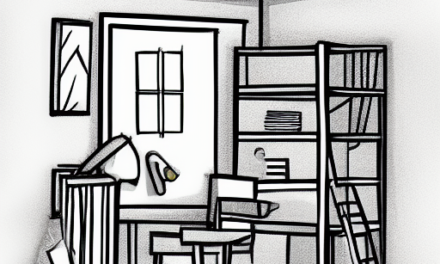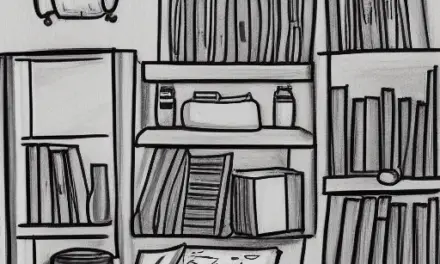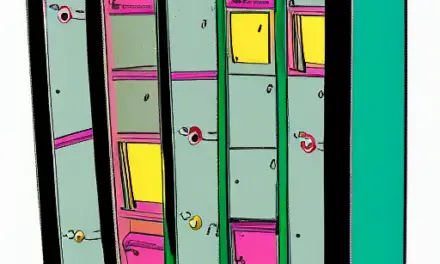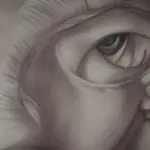Cats are susceptible to a number of heart issues. The most common of these is hypertrophic cardiomyopathy, which causes the muscle walls of the heart to thicken. This causes poor cardiac function, especially during diastole. It also results in an increase in the effort required to pump blood out of the heart during systole.
Congenital heart defects
Cats and kittens are susceptible to a number of congenital heart defects. These defects can occur at birth and are usually undetected until later in life. One of the most common is ventricular septal defect (VSD), which can lead to severe heart failure. The condition is characterized by abnormalities in the heart muscle and the pericardium, the sac surrounding the heart.
While VSD is the most common congenital heart defect in cats, other defects can occur as well. These defects can include malposition of the great vessels, failure to develop the heart chambers, and more. While most of these conditions are treatable and have a favorable outlook for recovery, they may shorten a cat’s life expectancy and may require long-term medication.
The recovery time for a cat with a congenital heart defect depends on the cause of the defect and the severity of the symptoms. Small defects, such as a heart murmur, often remain asymptomatic. Larger defects often lead to symptoms of congestive heart failure during the first 18 months of life. If your cat is suffering from one of these problems, it is best to seek the advice of a veterinarian.
A veterinarian may perform several tests to determine the extent of the heart defect. Cardiovascular work-ups may include thoracic radiographs, electrocardiogram, echocardiogram, and selective cardiac catheterization. These tests will also help determine the extent of the lesion and the need for therapeutic interventions.
Some of these defects lead to severe heart failure. Patients with atrioventricular valve stenosis or DORA may experience pulmonary edema, congestive heart failure, or even systemic arterial embolism. Occasionally, the condition may lead to sudden death.
A 6-month-old male domestic shorthair cat was referred to a veterinarian for evaluation of a heart murmur and ventricular septal defect. A physical examination showed moderate right apical systolic heart murmur, and thoracic radiography revealed left ventricular enlargement and pulmonary edema. Echocardiography revealed a perimembranous VSD, left-to-right shunting, and a small amount of mitral valve regurgitation. The patient also presented with gastrointestinal symptoms and left-sided congestive heart failure.
Ventricular septal defect is a common heart defect. It is caused by a malformation of the interventricular septum, which allows communication between the left and right ventricles. It can occur anywhere along the interventricular septum, but it is most commonly in the membranous portion under the aortic valve. It may also occur in combination with other congenital heart defects.
Adult onset heart disease
Cats often develop adult onset heart disease when they reach their middle or old age. This type of heart disease is caused by wear and tear on the heart’s structure. There are several different causes for this condition, including feline myocarditis, a heart attack, or an “unclassified” cardiomyopathy. Cardiomyopathy is one of the most common feline heart diseases, accounting for up to two-thirds of all feline heart diseases.
Early symptoms of adult onset heart disease in cats can be hard to detect, because most cats do not display any clinical signs until it is far advanced. Cats with advanced heart disease often become lethargic and withdrawn. Not all cats will show all of these symptoms, however, and many will exhibit more than one.
Other symptoms of adult onset heart disease in cats include difficulty walking and difficulty breathing. While the presence of these symptoms does not necessarily mean the underlying condition is advanced, it is an important first step in diagnosing the cat. If the symptoms persist, the veterinarian may want to perform additional tests to rule out underlying conditions. These tests may include blood tests, chest x-rays, and cardiac ultrasound. Echocardiograms are especially useful for determining the severity of the disease and the presence of blood clots.
The most common type of adult onset heart disease in cats is cardiomyopathy, which affects the heart muscle. Cats with this disease tend to be older than five years, but it can develop in cats as early as three months of age. Genetics may be a factor, as some breeds are predisposed to the disease. For this reason, breeders should test their sires and dams for a genetic mutation related to the disease.
Adult onset heart disease in cats may be the result of damage to the heart’s structure or function. While some cases of apparent adult onset heart disease are caused by a hereditary condition, others are the result of the wear and tear of the heart muscle. In either case, early detection is vital for proper treatment and prevention.
Treatment options
There are a number of treatment options for heart issues in cats. These include: A veterinary echocardiogram, which looks at the electrical currents in the heart muscle. This can detect heart muscle damage and abnormal heart rhythm. An electrocardiogram, also known as a heart ultrasound, allows a veterinarian to see inside the heart to look for abnormalities, such as thickening of the heart muscle or valve problems.
Heart disease in cats can be caused by a number of different underlying conditions. One of the most common problems is dilated cardiomyopathy, or DCM. DCM is characterized by enlarged heart tissue and weak pumping ability. This type of heart disease generally affects middle-aged cats, but some breeds are predisposed to it.
Cats may also experience a heart condition called hypertrophic cardiomyopathy. This disease has no known cure, but it is possible to manage the symptoms by treating the underlying condition, such as hyperthyroidism. Medications are also available to help decrease the risk of congestive heart failure in cats. These medications help relax the heart muscle, slow down the heart rate, and reduce fluid overload.
Treatment options for heart issues in cats may include diuretics to reduce fluid buildup around the heart and reduce the risk of blood clots. Certain drugs, such as ACE inhibitors, can also be given to lower blood pressure. A veterinarian can monitor your cat’s condition and evaluate the effectiveness of prescribed medications.
Early diagnosis is essential for keeping your cat’s heart healthy. Even if heart problems do not seem serious, they can shorten a cat’s life. For this reason, you must take your cat to the vet as soon as possible if you notice any of the symptoms. If the disease is left untreated, it may even lead to death.
Acute heart disease in cats often starts with difficulty breathing or walking. The cat may also spend more time resting or sleeping than usual, so an examination from a veterinarian is necessary. Detecting heart disease early may be difficult without a proper examination, however, since cats are notoriously good at hiding symptoms until it reaches a ‘critical point’.
Risk factors
Cats can develop heart problems for a variety of reasons. Heart failure, for example, can occur because the heart doesn’t pump blood efficiently. This can result in depletion of oxygen in the blood and can lead to symptoms like sudden difficulty breathing or even paralysis. Heart disease also increases your cat’s risk of arrhythmias, which can cause heart attacks or sudden death. It can also be complicated by other diseases, including kidney disease or hyperthyroidism.
Most cats who develop heart problems are asymptomatic for most of their lives, but some cats can develop symptoms such as collapse or congestive heart failure. While some cats with this condition can survive for years, many will die suddenly. A study of insurance data showed that cats with heart failure had a death rate of 30 per 10,000 years. A more recent study by Payne et al. (2013) reported a median survival time of 5.9 years for cats with heart problems. Out of those cats, 17 died suddenly.
If your cat is showing symptoms of heart failure, an echocardiogram will help your veterinarian determine the cause. An echocardiogram will identify any abnormalities in the heart chambers and determine if your cat has a heart murmur. A heart murmur is not a cause for alarm; however, it can be an indication of a heart problem.
Cats may also suffer from heart problems caused by blood clots. These clots can travel down the aorta artery, which delivers blood to the hind legs. This can cut off the blood supply and cause severe pain or even heart failure. If your cat suffers from heart problems, follow up care is essential.
A cat’s heart muscles can also be affected by hypertension. Cats with hypertension are at a higher risk of developing cardiomegaly than other breeds. Genetic mutations in the heart can make your cat more susceptible to developing heart issues. Fortunately, some of these heart problems can be prevented by regular vet visits.
The treatment for heart problems in cats depends on the cause and the severity of the problem. Treatment may involve medications to improve the heart’s function. Some medications, such as aspirin, can reduce the risk of blood clots, while others may reduce blood pressure. In severe cases, surgery may be necessary to correct a heart defect.












